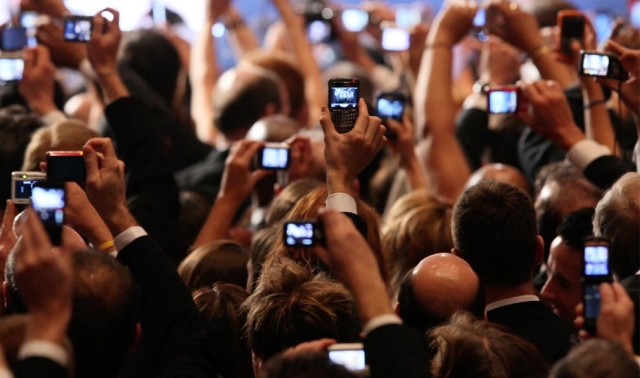I'll assume that we can preserve and be able to read all this information in more than ten years time...
The huge interest around the event is being shouted about by many companies on the web. Microsoft have asked everyone who took a photo to send them in so they can build a 3D representation of “the moment” using their photo-synth technology; Twitter reported their largest spike, over five times anything previously on the service; and Ustream reported over 400,000 viewers watching streams from the Mall.
Compare this to previous inaugurations in American history and the value of these recordings becomes even more impressive, and important. Although the main record will be the official pictures and film taken by the mainstream media, this is dwarfed by a couple of orders of magnitude by the 'user generated content' (sorry) made on the streets of Washington yesterday. Content that will be uploaded to sites like Flickr and YouTube, that will be indexed by search engines, and is a treasure trove of views, opinions, thoughts and memories of the general public on a momentous day.

It's pretty much guaranteed that people will treasure their own media they took of yesterday's events (and indeed of any event that is memorable to them, such as a birthday party, wedding or graduation, alongside major national and international events). What's going to be worth watching is what happens to this volume of information... if it will be archived, indexed, filed - or if it will be left spread out over countless web sites and servers with nothing to tie the pieces together?
Should Google, Yahoo, or MSN be looking at some sort of digital archive of key events like this? Will the Library of Congress ask for submissions to build up a digital picture of an events? Do we have a responsibility to ensure that we do keep all this content indexed for future generations?
When you hear about changes in the media and reporting of the events, it's all too easy to stop and look at just the single image on a smartphone (such as the Twitter picture of the US Air flight in The Hudson, surely a candidate for “The Picture of 2009” already. With hundreds of thousands of pictures and thoughts recorded, there is a huge jigsaw, spread all over the web, about one moment in time yesterday. There's a challenge for the search engines in the next year or so. And for content creators, curators and providers.
It's not just the inauguration of a president where this happens – think of any conference, especially those around technology and the internet, and you'll begin to realise how much of the world is documented through smartphones – and how much is being uploaded - to never be found again.
The smartphone/cameraphone has changed how events are recorded – what needs to change is how the events are reported not just at the time, but also for history.
-- Ewan Spence, Jan 2009.
